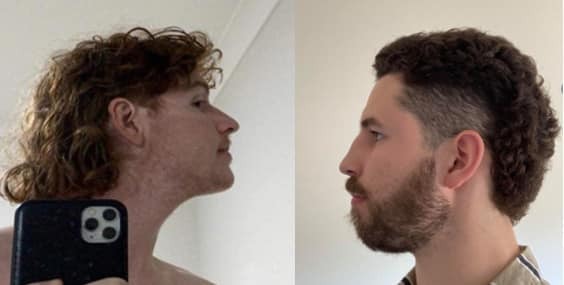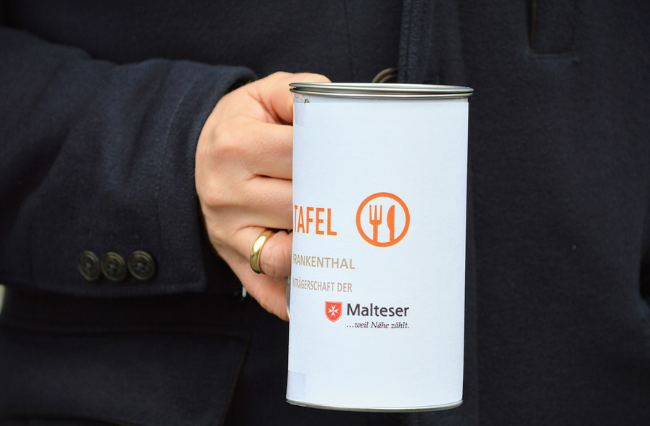The repercussions of COVID-19 have fundamentally changed the way we live.
The last six months saw individuals confined to their homes, social interaction non-existent and the familiar scene of catching up with friends and family growing into a distant memory.
While some have come to live with these changes, others have struggled to push through these challenging times. According to a study conducted by the University of New South Wales and the Black Dog Institute, 78 percent of participants reported that their mental health had worsened since the beginning of the outbreak. And although there are services designed to help individuals cope, these organisations too are suffering from the consequences of the pandemic.
Usually, Australian’s are a notoriously generous bunch of people. According to Australia Giving 2019, 68 percent of Aussies donated to charities last year. However, with the significant economic pressures of COVID-19, last year’s statistics have become hard to match.
This has prompted organisations to find new ways to help raise money for charities. For the Black Dog Institute, the solution was their inaugural Mullets for Mental Health campaign, held throughout September, aiming to turn home-job iso haircuts into a catalyst for change.
Seeing it as the perfect opportunity to rock the infamous hairstyle, friends Blake Salmon and Andrew McNeel jumped on board for this year’s campaign.

“It’s always been something I wanted to do,” Salmon told upstart. “I’ve always had pretty long hair and have talked a bit of smack about getting a rare cut into it. The fundraiser allowed me to do that [and] made it a no brainer,”
According to Beyond Blue, it’s estimated that 45 percent of Australians will experience a mental health condition in their lifetime. Meanwhile, in any one year, one million Australian adults will suffer from depression while another two million will have anxiety.
Salmon understands how hard isolation can be on both those with and without mental health conditions and aims to inform those around him on how easy it is to speak up.
“Our whole idea is to promote conversation, so if what we’re doing makes even just one of our mates who’s struggling and wouldn’t normally talk about this kind of stuff feel comfortable enough to talk to us, then we’d feel we’ve been successful,” he said.
The pair have so far raised over $2,000 and couldn’t be happier with what they’ve achieved.
“I am very proud of our efforts. We are extremely fortunate to have so many generous friends and family members, who have supported our mullets for mental health. I can’t wait for the Black Dog Institute to use this money to help support and educate people in the area of mental health,” McNeel told upstart.
While the pair primarily saw this as a chance to have fun whilst raising awareness, they couldn’t believe the support they received given the unprecedented economic conditions.
“It was such a good time to raise funds for and support the Black Dog Institute. What also made it such a special fundraising effort was even with the financial hardship experienced by many at the moment. We still had friends and family who still wanted to support the cause which was extremely generous of them and shows how much people care about supporting mental health,” he said.
Mental health support services aren’t the only charitable organisations struggling through this time.
The Salvation Army is one of the largest charitable organisations in Australia who organise a wide variety of programs for vulnerable people. However, they have faced many challenges during the peak of the pandemic, most notably a significant change to their fundraising model.
“The biggest challenge in the fundraising space for us was our inability to do face-to-face fundraising,” a Salvation Army spokesperson told upstart. “Given much of our fundraising efforts go into face-to-face activities, we had to find a way forward on very short notice.”
One solution was to increase their marketing strategies to focus on a wider demographic through digital fundraising initiatives.
“We did this via a peer-to-peer fundraising platform. We also leveraged our existing digital platforms, increasing the marketing, for example, to the donation landing page.”
“Our messaging contained two board messages. The existing community need, that was still present and growing regardless of COVID, and the impact COVID [sic] has had on the demand for our services from a much wider audience than we had traditionally served. We also had a local focus on local services that were supporting the local community,” they said.
Whilst the incoming “COVID-Normal” will allow Victorians to return to the activities we have been barred from doing this year, it doesn’t mean the challenges won’t remain for charitable organisations.
“The biggest challenge for The Salvation Army will be preparing for what is likely to be an increase in need for our services as JobKeeper and JobSeeker tail out. We are thinking through the issues of this increased demand and will respond as best we can to presenting needs,” the Salvation Army spokesperson said.
A return to everyday life does not mean Salmon will be ditching his mullet, nor the conversation about mental health.
“Andy and I have started a video series on YouTube where we talk to our friends and talk to them about their mental health journeys and what does and doesn’t work for them. We also use it as a bit of a catch up to see what they have been up to during isolation,” he said.
“The main aim is to continue to make ourselves look approachable to our friends outside of the campaign.”
—
If you wish to donate to either the Salvation Army or the Black Dog Institute head to their websites.
Salvation Army: https://www.salvationarmy.org.au/donate/make-a-donation/donate-online/?appeal=rsahomepage
Black Dog Institute: https://www.teamblackdog.org.au/donate
If you or anyone you know needs help, please contact the following services:
Lifeline: 13 11 14
Headspace: 1800 650 890
BeyondBlue: 1300 22 46 36
Kids Helpline: 1800 551 800
Miah Shannon is in his final year studying sports journalism at La Trobe University, you can find him on Twitter @Miah_Shannon
Photo: Donate, collection box, money available HERE and used under a Creative Commons Attribution. The image has not been modified.







